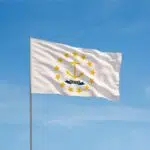Children’s Book Week takes place from May 4 to 10 this year. Teaching your children to immerse themselves in a good book is one of the most valuable things you can do as a parent. A childhood love of reading sets the stage for success as an adult. A child who loves reading will have an enquiring mind, a vivid imagination, and great problem-solving skills. Set some time aside to do some reading with your kids this week and inspire a lifelong love of the written word. The week was created by Every Child a Reader in 1919 and is the longest-running national literacy initiative in the country.
History of Children's Book Week
Children’s books as we know them today have been around since the 18th century, with the earliest of the genre being educational books, books on conduct, and simple A.B.Cs.
“Tommy Thumb’s Pretty Song Book”, published by Mary Cooper in 1744, is the first known nursery rhyme collection. However, the most celebrated of the pioneers in children’s literature is John Newbery, whose first book for the entertainment of children was “A Little Pretty Pocket-Book,” which is widely considered to be the first modern children’s book. Newbery became known as the father of children’s literature and set the tone for the literature of years to come. Books like ”Alice in Wonderland,” “Adventures of Pinocchio,” and “Treasure Island,” all became later examples of advancement in the field of children’s literature.
Children’s Book Week is the longest-running national literacy initiative in the United States, and it originated in the belief that children’s books and literacy have the potential to transform lives. In 1913, Franklin K. Matthews, a librarian of the Boy Scouts of America, began touring the country to promote higher standards in children’s books and promoted the idea for Children’s Book Week.
In 1916, the American Booksellers Association, and the American Library Association sponsored a Good Book Week with the Boy Scouts of America, with the help of Matthews, Frederic G. Melcher, editor of Publishers Weekly, and Anne Carroll Moore, the Superintendent of Children’s Works at the New York Public Library. Children’s Book Week was established in 1919, and in 1944, the newly-formed Children’s Book Council assumed responsibility for putting on Children’s Book Week thereafter. Schools and organizations have been celebrating Children’s Book Week ever since, and its 100th anniversary was marked in 2019.
Children's Book Week timeline
The first nursery rhyme collection, “Tommy Thumb's Pretty Song Book,” is published.
Franklin K. Matthews begins touring the country to promote higher standards in children’s literature.
The American Booksellers Association and the American Library Association sponsor a Good Book Week with the Boy Scouts of America.
The inaugural Children’s Book Week is held, and a cherished tradition begins.
Children's Book Week FAQs
Why do we celebrate Children's Book Week?
Children’s Book Week is an opportunity to celebrate kids’ stories, from classics to contemporary books.
How do you celebrate Children’s Book Week at home?
Ways to celebrate Children’s Book Week include creating a cozy book area, doing craft projects related to your child’s favorite story, and introducing your child to the wonder of new stories.
Who invented Children’s Book Week?
Children’s Book Week was established in 1919 by Every Child a Reader.
Who invented Children's Book Week?
Children’s Book Week was established in 1919 by Every Child a Reader.
Children's Book Week Activities
Read to a child
This week will be the best time to gather the little ones to hear a story. If you’re a teacher, make this a fun activity for your classes.
Attend a reading event
Organizations like Book Trust and Every Child A Reader hold different fun events and activities that your kids will love to be a part of. Find out if they are arranging anything in your area, or if a local library might be organizing something.
Arrange an author visit
If you’re a librarian or teacher, arrange an author visit sometime within the week. You can get your kids involved in the selection process by finding out their favorite authors.
5 Interesting Facts About Children’s Literature
“Peter Pan” characters had different names
In the first draft of “Peter Pan,” Michael’s name was Alexander and Tinkerbell was Tippy-Toe.
Dr. Seuss faced several rejections
Although more than 500 million copies of his books have now been sold worldwide, Dr. Seuss’s first book was rejected by approximately 27 publishers.
Roald Dahl didn’t like beards
The book “The Twits” was inspired by his intense dislike of beards.
“Alice in Wonderland” was banned in China
In 1931, “Alice’s Adventures in Wonderland” was banned in the Hunan province of China because the governor believed animals should not use human language.
The fastest-selling “Harry Potter” book
The final book in the “Harry Potter” series was one of the fastest-selling books of all time, with 15 million copies sold on the first day alone.
Why We Love Children's Book Week
It’s a fun way to get kids to read more
Children have relatively short attention spans, and often do not enjoy reading. Children's Book Week presents a fun opportunity to get kids excited about books. Literacy is an important aspect of development, and this week allows kids to start the process young.
It’s filled with stories
Who doesn’t love a good story? Even adults find themselves easily lured in by a well-told story, and this can apply to our kids too. This week gives us a chance to tell and listen to as many interesting stories as possible and dive into different worlds.
It’s a great bonding experience
Children's Book Week is not just for schools, libraries, or other related establishments. This week could be a great bonding experience for parents and their children as well. The simple act of gathering the kids around for a story will create precious memories.
Children's Book Week dates
| Year | Date | Day |
|---|---|---|
| 2024 | May 6–12 | Monday–Sunday |
| 2024 | November 4–10 | Monday–Sunday |
| 2025 | May 5–11 | Monday–Sunday |
| 2025 | November 3–9 | Monday–Sunday |
| 2026 | May 4–10 | Monday–Sunday |



































